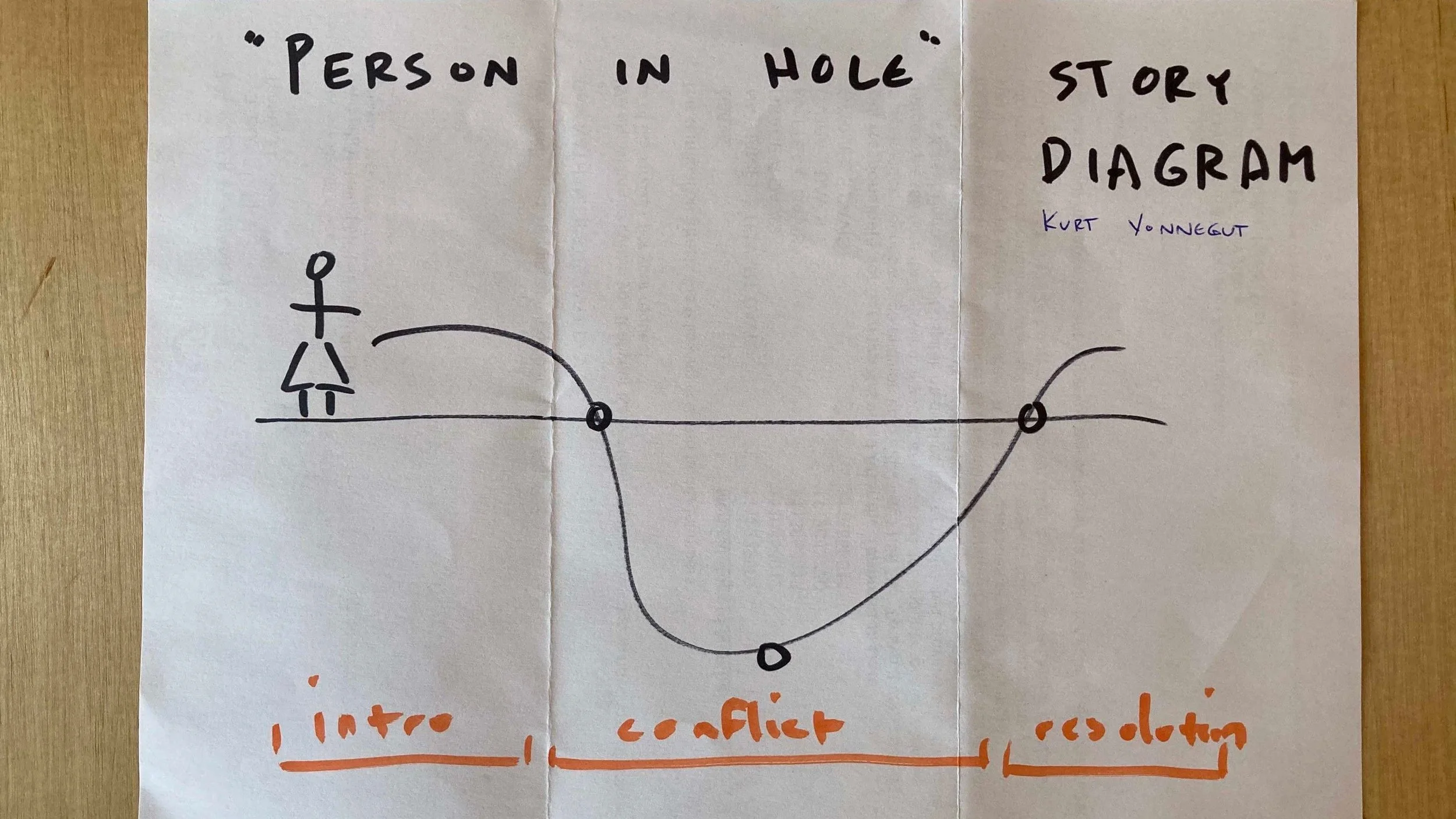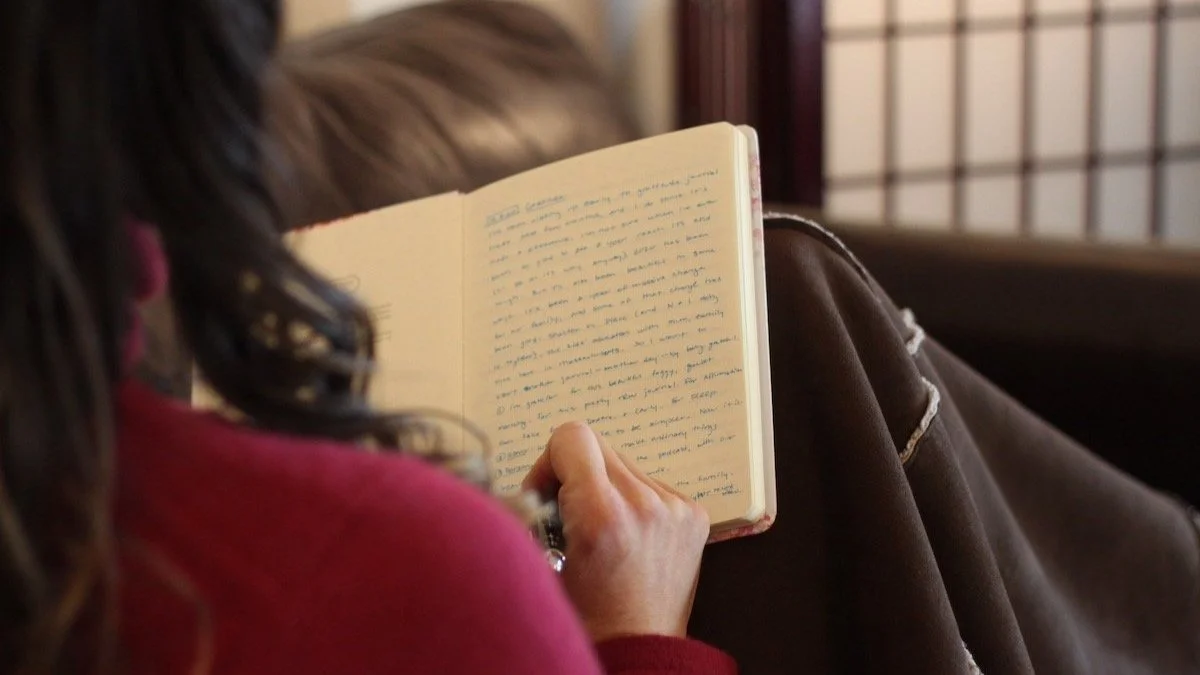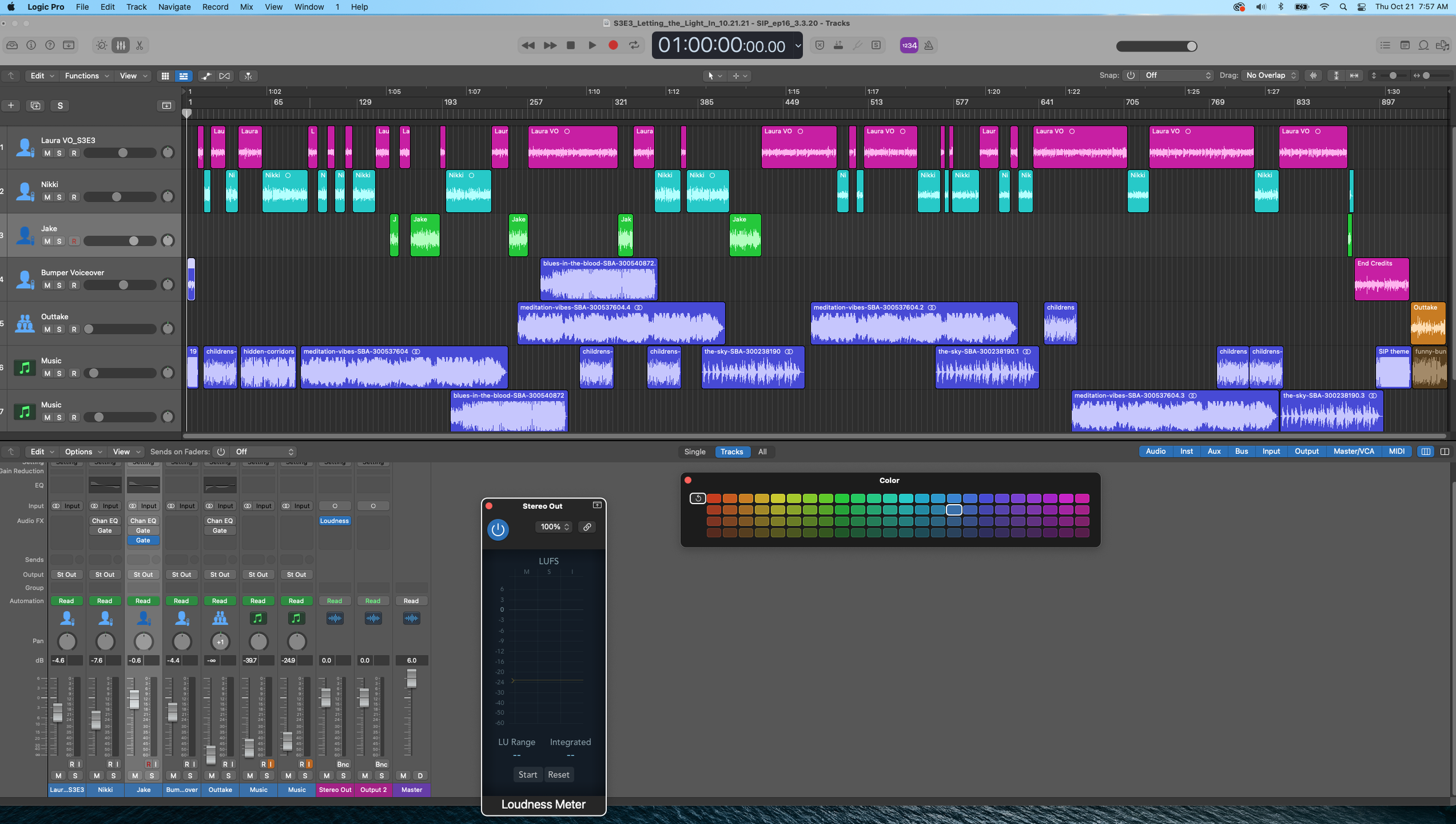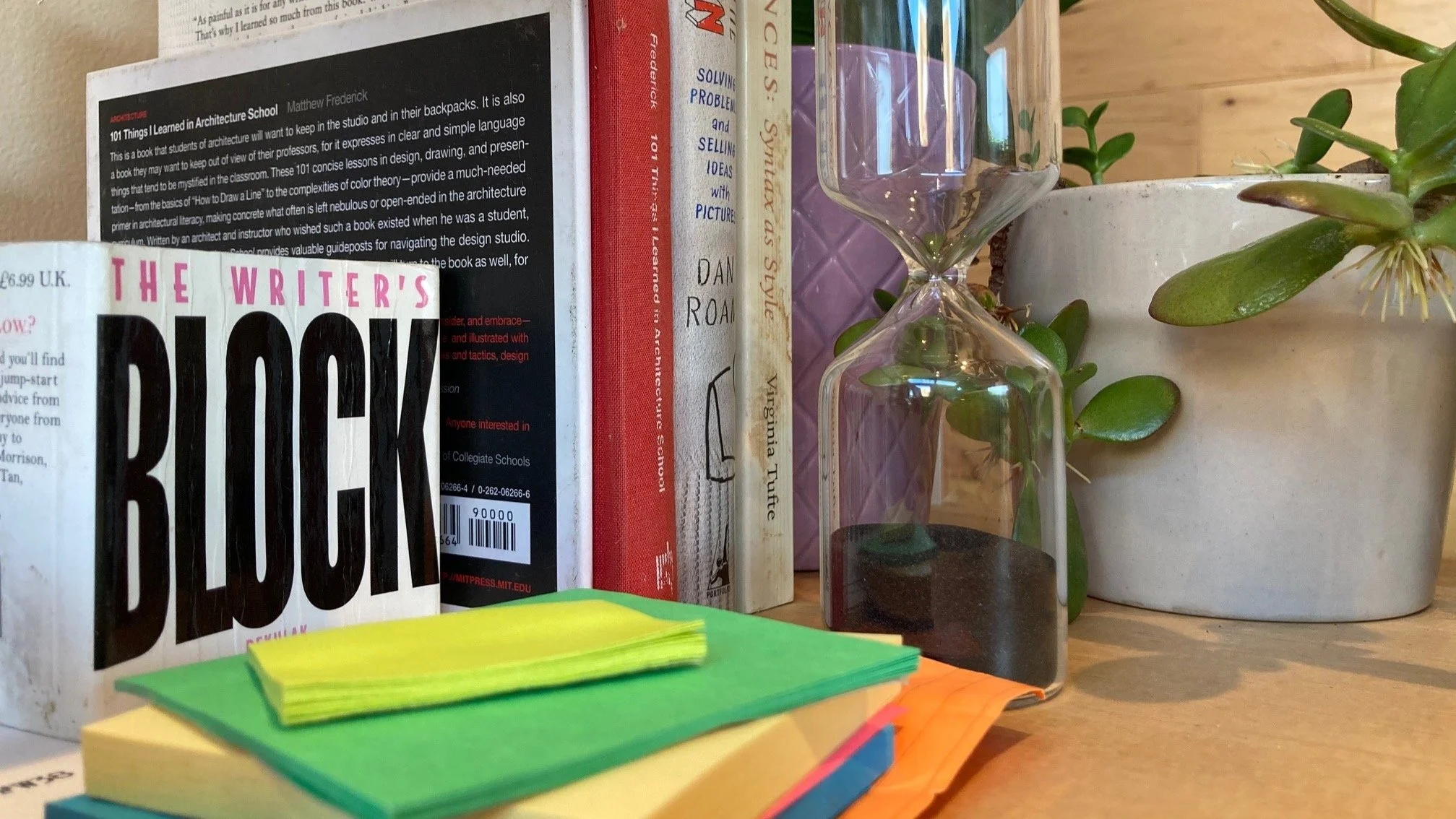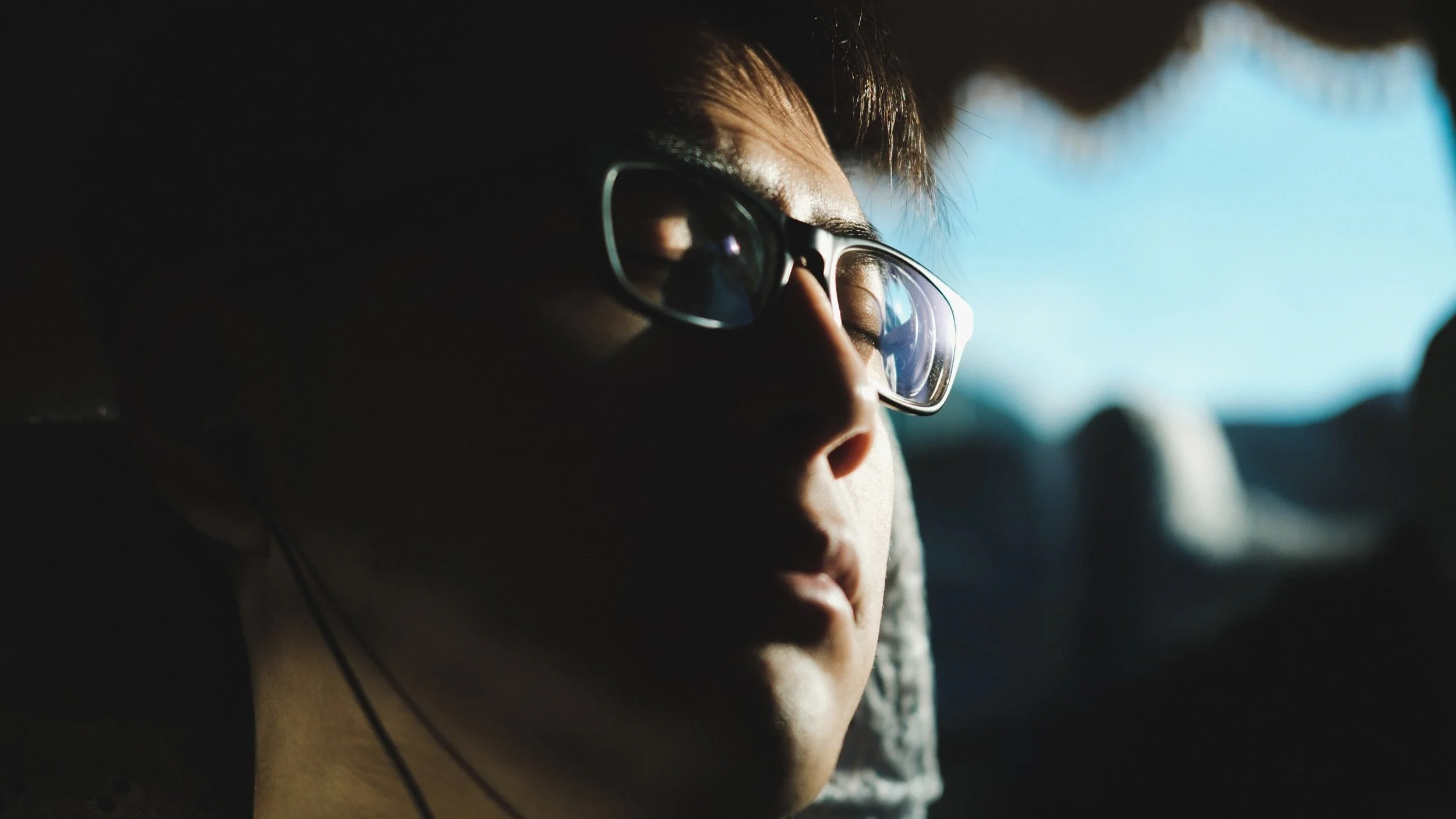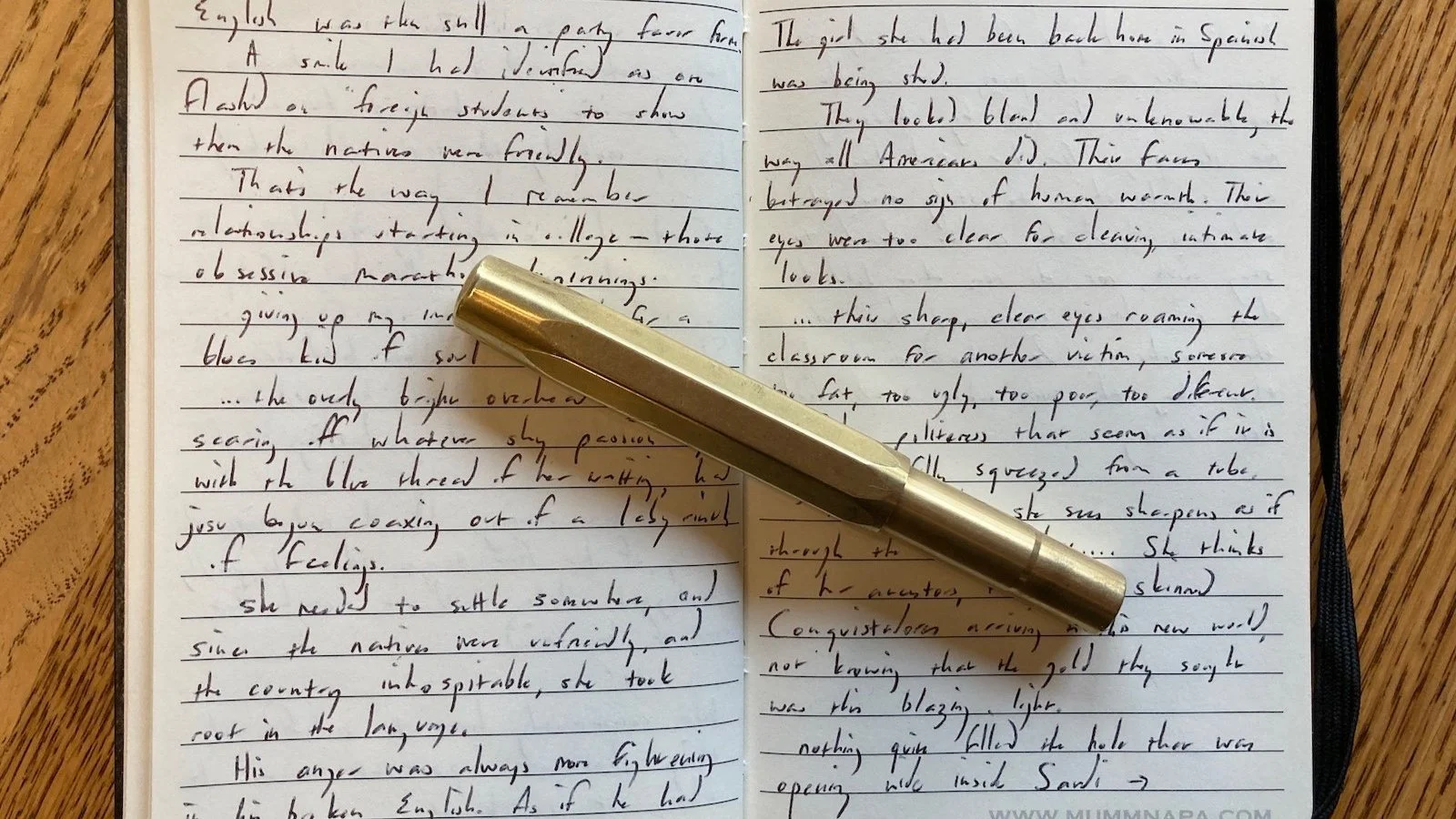▫︎ LEARN IN ONE SEMESTER WHAT TOOK US TWO YEARS ▫︎
Sixteen weekly lessons cover all the elements of creating a standout scripted podcast: ideation, scriptwriting, story structure, interviewing, audio editing, VoiceOver, sound design, project management, and budgeting. These are the things we learned creating 200 scripted episodes of Shelter in Place.
But the lessons also cover many creative, vocational, and life lessons it took us the past 20 years to learn: discovering your creative personality. Discerning how personal to be in your writing. Working through different types of blocks. And not just doing creative work, but building creative habits that will set you up for a lifetime.
Course modules: from idea to launch
1. Why create?
This is where it all begins. We’ll dig into this deceptively simple question that guides everything we do, from episodes to coaching, training, and mentorship.
2. Great story
You’ll get tools to move from idea to first draft to final episode script, and a larger framework that centers your listener as the hero for any story or episode type.
3. Creative personality
You’ll use leadership development tools to understand your creator frame of reference, and use that framework to find your creative superpower.
4. Great sound
You’ll articulate your audio editing ethos, learn which parts you can speed up and which to slow down, and create an audio editing manifesto.
5. Tell me more
You’ll develop a personal guide that identifies what’s most important as you interview guests—and be prepared to be your best when you are interviewed yourself.
6. Finding your voice(over)
You’ll learn how to get high-quality audio no matter where you’re recording, and how to sound natural when you’re hosting, even when reading a script.
7. Let’s get personal
You’ll learn how to see discomfort and resistance in your writing as windows to the heart of the story, and how to discern what to share, and what to leave out.
8. How not to podfade
You’ll learn how to start well: to align your intentions and actions with conditions, and get advice from us and other experts on priorities and practical details.
9. Great structure
You’ll be introduced to structures and provided with the templates and tools to implement them—and experiment with and refine your own writing processes.
10. The messy middle
You’ll gain tools for assessing where and why you’re stuck, and for diagnosing and working through practical, intellectual, emotional, creative, or writing blocks.
11. Befriending the beast
You’ll go deeper into podcast production both for individuals and teams, and develop a personal guide for making project management and production sustainable.
12. Sonic storytelling
You’ll learn how to use music, sound, and dynamics to create vivid cinematic soundscapes that surprise, delight, and highlight your story’s ideas and voices.
13. Pitch perfect
You’ll learn the secret to pitching yourself and your ideas well, to increase your odds from episode pitches to magazine submissions to job interviews.
14. Creative living
You’ll develop satisfying creative habits, and identify which creative work you need to feel fulfilled—and how to find a place for that even if it’s not your job.
15. Beyond networking
You’ll learn to approach the industry not as self promotion, but as relationship building that results in sponsors, partnerships, and collaboration.
16. Why keep creating?
You’ll audit your current commitments, develop a strategy to avoid (or recover from) burnout, and plan steps to stay true to your creative vision.
Questions? See the FAQ’s
(Or read the official press release in PodNews!)


